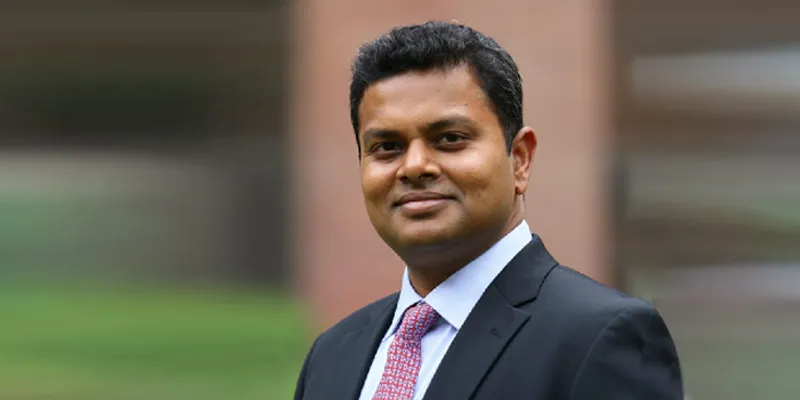5 years after launch, edtech startup Great Learning is eyeing Rs 100 crore in revenue
Great Learning has differentiated itself from the many edtech startups out there with courses that are high quality and industry relevant, and translate into career growth and salary increase.
In the digital economy, career success goes hand in hand with continued upskilling. The 2016 report of the Expert Group on Future Skills Needs says with the shelf life of skills “becoming shorter, engagement in lifelong learning for those in employment will be key to their continued employability”.
No wonder then that the online education market in India is a crowded space. The career enhancement segment in the edtech market, commonly referred to as upskilling or reskilling, has a mix of players offering free or paid courses.
Great Learning, a Gurgaon-based edtech startup founded in 2013, aims to set professionals up for “learning for life” with its high-quality and industry-relevant programmes. The startup, which wants to make every professional future-ready for today's data-driven world, claims its students have seen a 50 percent increase in salaries on an average.

Mohan Lakhamraju, Founder and CEO of the bootstrapped startup, donned many hats before launching Great Learning. An alumnus of IIT-Bombay and Stanford, he founded a tech startup and was also associated with Tiger Global and Draper Fisher Jurvetson, leading their investment activities. Great Learning was co-founded with Hari Krishnan Nair.
“The online learning space can have various kinds of implications for those who take the courses, which vary from shallow and medium impact to those offering depth. We, at Great Learning, focus on equipping students with depth and rigour so it can have transformational impact on their lives,” Mohan says.
Blended model
Great Learning realises that a completely online model isn’t the best way to learn as it is largely one-way communication. The team took the format used by top institutes and blended it with online elements to maintain depth and rigour in their courses, which aim to build competence, problem-solving ability, etc.
“Working professionals often cannot avail of courses at top educational institutes as they have busy schedules. So, we have chosen to go this way,” Mohan says.
Great Learning’s courses bring in the interactive element with regular classes. The startup offers three models of online education. The first is blended learning, which lasts between nine and 12 months. In these courses, students come to the classroom two to three days in a month; the rest of the learning is online. The second model - mentored learning – spans six to nine months and is for those who cannot be a part of classroom learning. All information is disseminated through videos; every weekend, live video sessions with mentors are offered to groups of 5-10 students. Both these courses cater to professionals with experience ranging between three and 20 years. For professionals with less than two years’ experience, Great Learning offers a bootcamp, an intense five-month, full-time programme.
“We are essentially identifying what models of learning will work for different segments and how we can use technology to scale,” Mohan says.
Great Learning offers courses in business analytics, machine learning, artificial intelligence, data science, and cloud computing. It will soon offer training in cybersecurity, Internet of Things (IoT) and blockchain.
“A majority of our students are mid-career professionals with four to 12 years of experience. They come from diverse industries such as IT, BFSI, manufacturing, healthcare, automotive, NGOs, government etc,” Mohan says.
Great Learning has also launched a three-month deep learning programme in collaboration with professors from IIT Mumbai. Deep learning, which uses neural networks to solve problems that involve non-quantitative data like text, video, image, voice etc, is proving better at solving problems than traditional machine learning.
“Deep learning courses are feasible today. Deep learning requires the use of supercomputers, which have prohibitive costs, but now the prices of GPU worldwide have come down so it makes these machines affordable. We have set up an online GPU lab where people can access these courses,” Mohan says.
More than 5,000 students have been a part of Great Learning’s paid programmes over the last five years. “We are now looking at an intake of 5,000-6000 paid learners in the 2018-19 fiscal itself. We will basically look at doubling our growth every year for the foreseeable future,” Mohan says.
Great Learning charges between Rs 3-4 lakh for the one-year course, and Rs 1.5 lakh for the six-month course. “It is a sizeable investment, but pays off very well. Majority of the students come to us after they have gone through many online learning portals,” Mohan claims.
The startup also offers Great Learning for Life, a free learning resource, which has had 4.2 million visitors till now.
The financials
A report by KPMG and Google on India says the edtech market will touch $1.96 billion by 2021, with close to 9.6 million users from $247 million and over 1.6 million users in 2016. The edtech market in India has flourished with multiple players like UpGrad, Simplilearn, Udacity, Great Learning, and Coursera.
The strides made by Great Learning are also reflected in its financials. For the financial year 2016-17, it reported revenues of Rs 26.4 crore with a net profit of Rs 3.1 crore. In fiscal 2015-16, revenues stood at Rs 9.7 crore with a net profit of Rs 30 lakh. These figures are according to data sourced from the Registrar of Companies (RoC).
The startup, which employs more 160 people currently, is targeting revenues of Rs 100 crore in the current fiscal.
Growth in demand
“We have students from 10 different countries across the Middle East, Africa, Australia, Southeast Asia, the US, and the UK. We have businesses engaging with us so there is a large opportunity,” Mohan says.
Companies are reaching out to Great Learning, seeking upskilling and reskilling courses for their employees.
The reason, he believes, is the gap between the training academic institutes provide and the skills the industry needs. “This gap needs to be bridged by companies like us. Even large companies have realised that they will not be able to fulfil this requirement,” Mohan says.
Vidhya Shankar, Executive Director, Grant Thornton India, says: “This (edtech) is going to be one of the most lucrative segments for a long time to come. The opportunity for growth is huge as the route to education is either through formal learning or vocational courses with the majority falling into the second category.”
“People who do not have the resources for formal education will find vocational courses more attractive. These startups are supplementary to the formal education set up; the ones that will stand out are those able to maintain higher standards,” Vidhya says.
The founder says the bootstrapped startup is profitable now and discussions are on with a couple of investors for funds. “We have not raised money so far because we did not need it. Now we have new avenues of growth,” Mohan says.
Mohan talks of the need for a soft skills training programme that acts as a career differentiator for technology professionals. “That is something I would love to do but we should realise that people are not willing to pay for it. They do not value it. I hope are that as the market and companies mature, they will look into it.”
Great Learning’s future plans, Mohan says, include tapping overseas markets, working on edtech solutions that cater to the youth, and setting up online labs so students can get hands-on experience.







